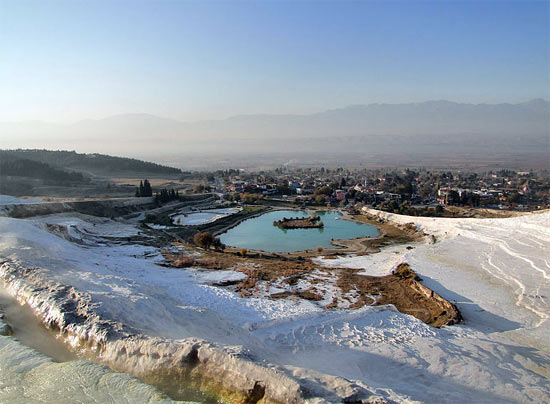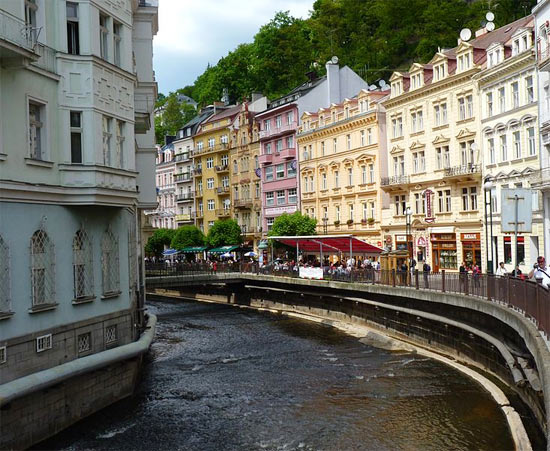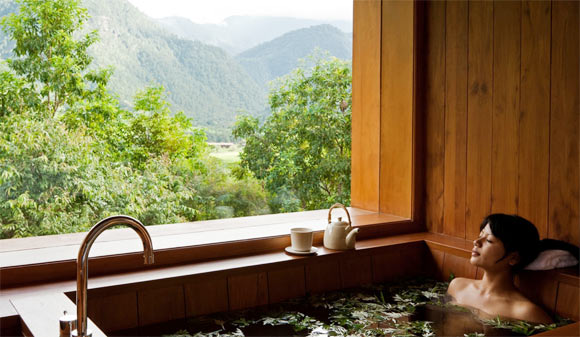 | « Back to article | Print this article |
Detox getaways: Hot spots to heal mind, body and soul
From the mud baths of Turkey to the mineral springs in the Czech Republic, we recommend some offbeat destinations for healing the mind, body and soul.
Balmy pools and ancient mud baths in Turkey
If you can peel your eyes off the ornate Ottoman architecture, the whirling Dervishes and the bustling cafes of Istanbul, then head to the quiet town of Dalyan in western Turkey where you will find something that will calm both your body and mind.
You will be able to smell the mud baths of Dalyan even before you see them as they contain sodium chloride, hydrogen, sulphur, bromide and fluoride. These baths are a great place to make friends as you can usually find gaggling groups of tourists splashing each other with mud.
The balmy Mediterranean sun dries the mud on the skin, and once rinsed off, the skin is left feeling fresh and exfoliated. The baths are situated near two hot springs in which the water temperature fluctuates between 30 ° C and 38 ° C, with pH factor of about 6.5.
It is believed that Cleopatra would travel to Dalyan for a soak in the mud bath. In more recent times this historic town has played host to the likes of Hollywood actors Dustin Hoffman and Jack Nicholson and singers like Sting.
If slathering in mud is not to your liking, then head to the spa town of Pamukkale or Cotton Castle, which is known for its limestone deposits.
Lining the landscape like fluffy cotton fields, these deposits are located right next to thermal pools. The calcium- rich waters of these pools have restorative properties and are believed to cure asthma, rheumatism and various other ailments.
Getting there: One can visit Pamukkale and Dalyan from Istanbul. 4 days/ 3 nights package to Istanbul by Cox & Kings costs Rs 20,140 per person, including accommodation and airport transfers. This excludes travel fares and accommodation in Pamukkale and Dalyan.
Detox getaways: Hot spots to heal mind, body and soul
The spa town of Karlovy Vary
If you think you can simply waltz into a spa and get a hot mineral bath, you are mistaken. The spa town of Karlovy Vary in the Czech Republic is always bustling with tourists, hoping to experience one of its famous medicinal therapies.
The 12 mineral springs located across the town have been the toast of Europe for centuries, with various aristocrats such as Peter the Great and Frederick I of Prussia, coming to Karlovy Vary to try cure their digestive disorders. You can make an appointment for a steam inhalation or sip on the mineral rich water while sitting in a cafe.
Or you can visit the Vridlo, the best- known geyser in the town, which shoots its curative waters to a height of 12 metres.
Getting there: 2 nights/ 3 days package by Thomas Cook with accommodation in a 3- star hotel on double occupancy basis ( excluding airfare) would cost Rs 5,646.
Detox getaways: Hot spots to heal mind, body and soul
Thermal springs in Jordan
The ancient city of Petra, the biblical site redolent of tales of Jesus, a camel safari through the red sands of the Wadi Rum and a dose of art and culture in the capital city Amman in Jordan offers this and much more.
Yet, for a tourist looking for a therapeutic experience, the obvious choice are the thermal springs after a day of experiencing the mud-pack therapy and soaking in the mineral and saline-rich water of the Dead Sea.
The hills lining the Dead Sea coast are dotted with steaming springs as there are some 60 of them gushing below the surface, often breaking ground with great puffs of steam.
The most famous of these is the Hammamat Ma'in, located within Madaba and the Dead Sea, with water temperatures ranging from 45°C to a scorching 60°C. Most of these springs bounce off the sulphurous rocks to cascade down the hillside in a series of waterfalls, to collect below as warm pools.
For an entrance fee, you can use the Roman baths located at the base of the Hammamat Ma'in and soak in the water enriched with potassium, magnesium and calcium.
Getting there: 3 days/4 nights package by Thomas Cook to Ma'in Jordan costs Rs 20,075, including accommodation. The airfare is between Rs 27,000 and 31,000 on Royal Jordanian.
Detox getaways: Hot spots to heal mind, body and soul
A touch of the traditional in Bhutan
The land of the Thunder Dragon and eternal happiness, Bhutan has several secrets tucked away within its lush mountainous folds.
One of these is the traditional hot-stone bath, also known as dotsho in the local language.
This particular medicinal soak has been practised in the Himalayan kingdom for centuries and is believed to relieve joint pains, hypertension, stomach disorders and arthritis.
For many Bhutanese families, this bath is a day-long event, with some even consulting an astrologer to select an auspicious day to ensure maximum healing.
Tourists need not go to such lengths, as most luxury resorts across the country, such as Uma Paro, offer these as part of their spa therapies.
As part of dotsho, river stones are first heated on a roaring fire and then put in a tub of water along with some traditional medicinal herbs. The stones sizzle in water to release minerals that not just help to soothe away the stress but also have a curative effect on your body.
Getting there: 5 nights/6 day package by girlsonthegoclub.com with accommodation on a twin share basis, transport and breakfast (excluding airfare) would cost Rs 25,000.




